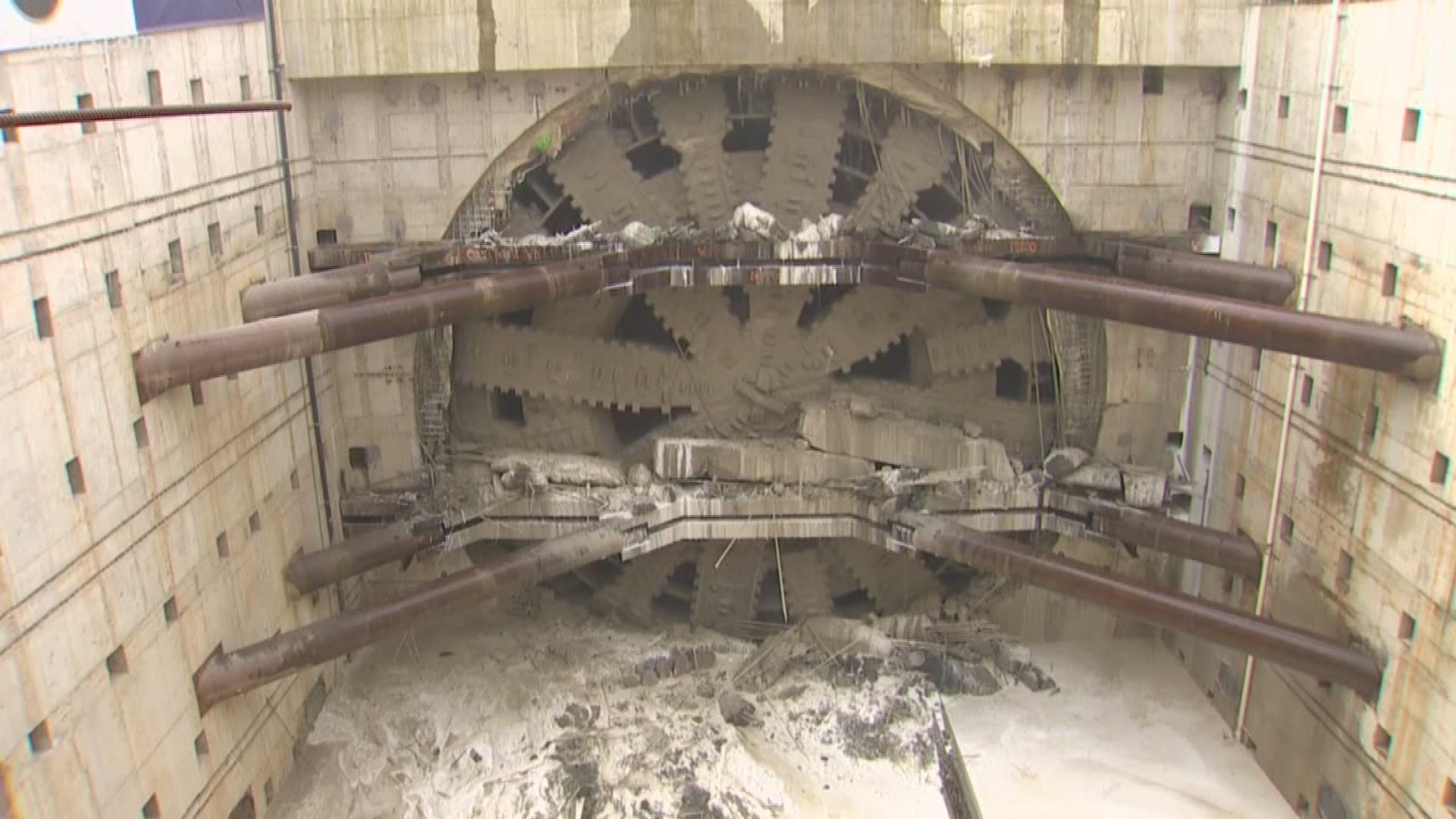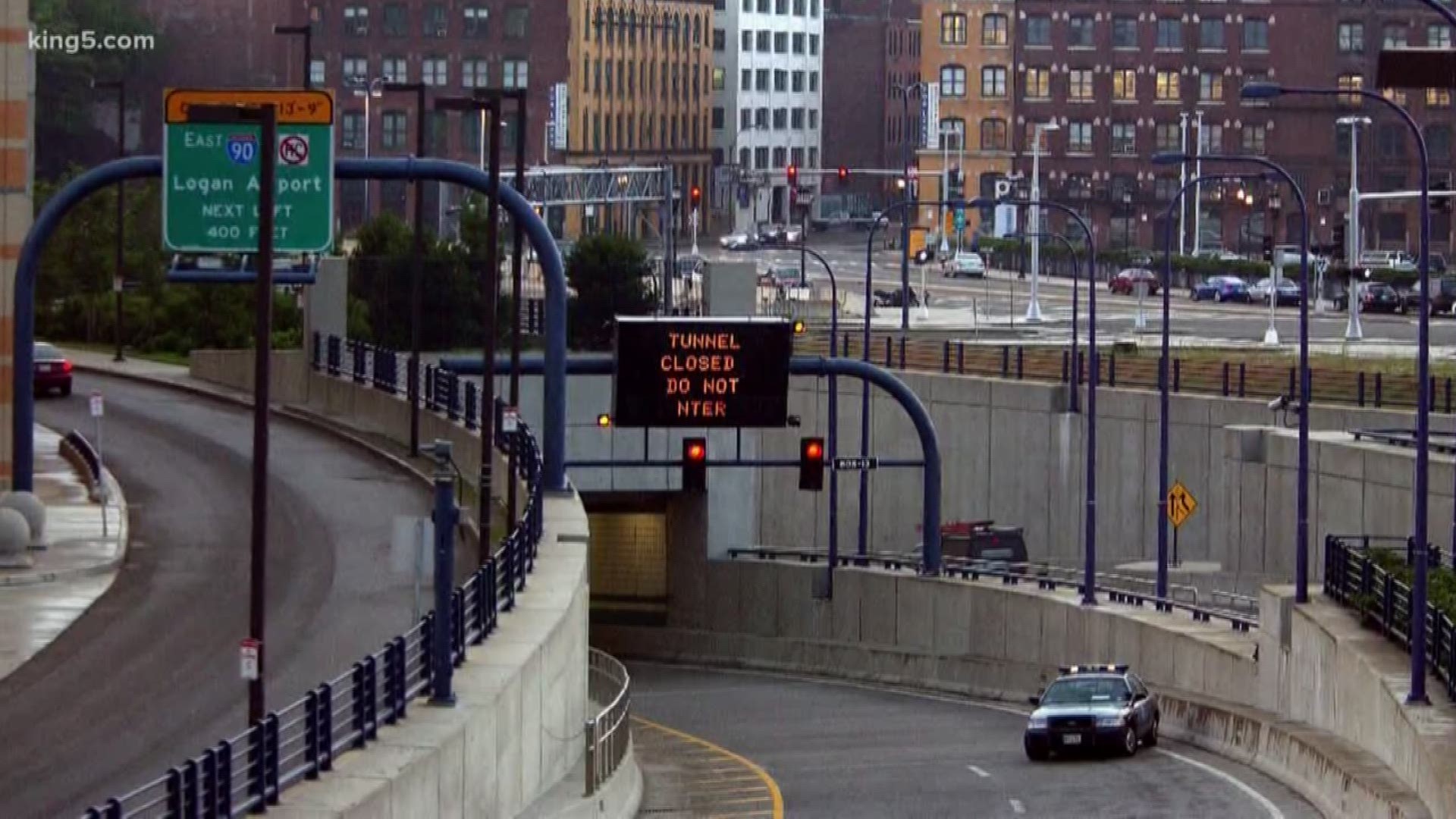Since the boring machine “Bertha” broke ground in July of 2013, crews building the massive tunnel under Seattle submitted “change orders” that added nearly $58 million to the overall cost of the project, according to records reviewed by the KING 5 Investigators.
The question of who is responsible for Bertha’s two-year breakdown will be settled in court.
But the more than 150 unexpected change orders submitted during the life of the tunnel project usually resulted in additional costs to the public.
The Washington State Department of Transportation (WSDOT) paid design-builder Seattle Tunnel Partners (STP) $2,708,133 when it approved change order #109 in February of 2015.
The money covered the costs of a labor disruption when longshoreman from the Port of Seattle picketed the project claiming the union had jurisdiction over some of the work on the project.
That’s a valid cost that the public should be paying for, according to University of Washington Professor of Construction Management John Schaufelberger.
“It was a jurisdiction thing that really wasn’t caused by the contractor,” said Schaufelberger, who pointed out the payment was made in accordance with a “labor harmony” provision that was spelled out in STP’s contract with WSDOT.
Records obtained from WSDOT through a public records request show:
- $2,586,068 paid in 2015 for a 12-day work stoppage resulting from the discovery of a bed of clam shells 20 feet underground. An “archaeological investigation” determined the shells were not Native American and did not hold any historical significance.
- $389,119 paid in 2015 for additional surveys of Pioneer Square buildings after WSDOT detected potential “ground settlement” in the surrounding area.
- $288,323 for additional parking in the waterfront area for the 2012 tourist season.
- $1,059,489 paid in 2014 because of an increase in the state sales tax.
“When the sales tax gets increased, that’s not the contractor’s fault,” said Schaufelberger.
The professor reviewed selected change orders at KING 5’s request.
Schaufelberger said those change orders seemed acceptable considering that an underground, mega-project like the Highway 99 tunnel is full of unknowns.
“Working underground you are flying blind in many cases because you encounter things that you hadn’t anticipated. You have to be very creative and innovative to work around them to minimize the cost,” said Schaufelberger.
Schaufelberger says WSDOT planned accordingly with tens of millions of dollars set aside in contingency funds. That money was accessed by change orders as well, but those change orders were expected.
WSDOT says it spent an additional $57,970,254 on unexpected change orders – money that did not come from a contingency fund. WSDOT says that money added 4.31 percent to the overall cost of the project, which stands at $1.3 billion.
“A project that has no more than 5 percent cost growth is a well-executed project,” said Schaufelberger.
Based on the change orders he reviewed, his conversations with WSDOT officials, and two visits to view the boring project, Schaufelberger says the state did an exemplary job.
“On the tunnel project itself, if you take out the (broken down) boring machine issue which is going to be settled by the courts, they did a wonderful job,” said Schaufelberger.
In court, STP is seeking $642 million for delays and repairs after Bertha broke down. The contractor said a steel pipe that the state did not warn it about disabled the boring machine.
WSDOT denies that and says the contract holds STP responsible for such repairs.
Join KING 5's Seattle Tunnel Traffic Facebook group to stay up-to-date on the latest Seattle tunnel and Viaduct news and get tips to battle traffic during the three-week Viaduct closure in January.


